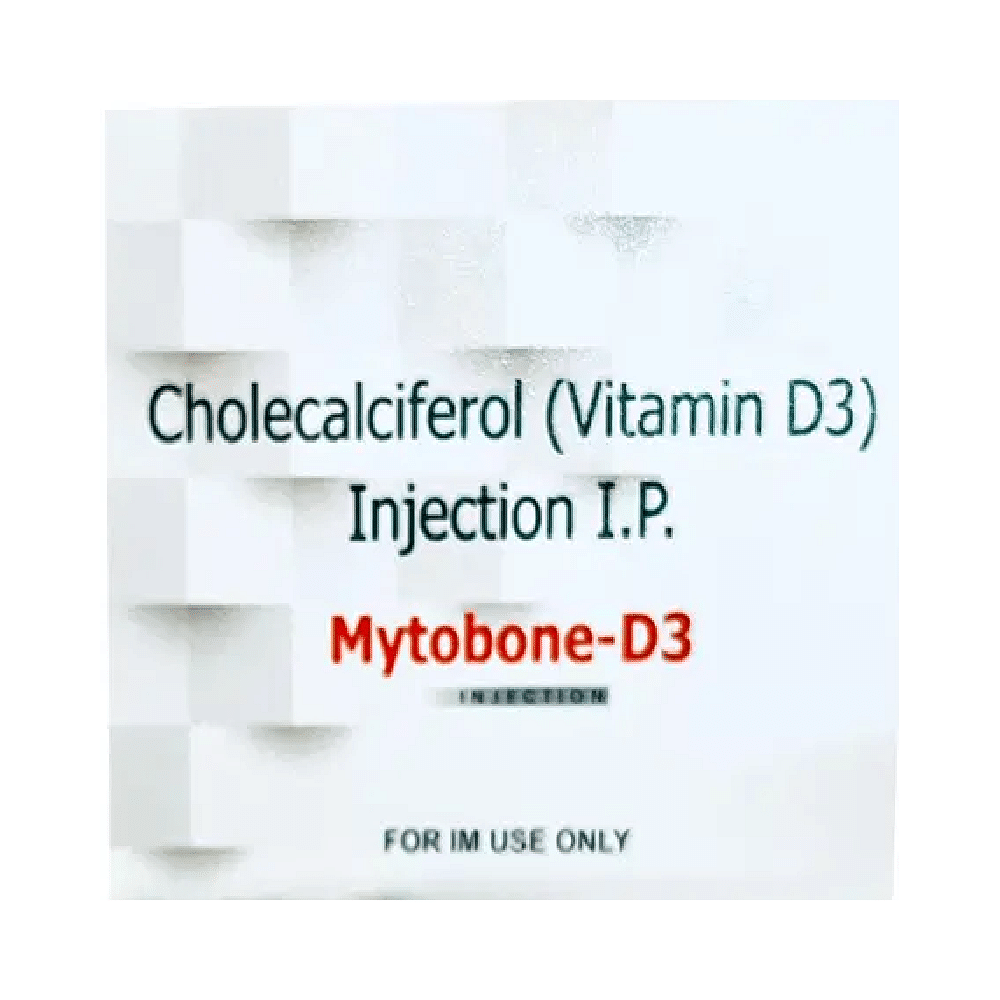

Updee 6L Injection
Manufacturer
Zeelab Pharmacy Pvt Ltd
Salt Composition
Vitamin D3 (600000IU)
Key Information
Short Description
Updee 6L Injection helps your body to absorb a mineral called calcium, which is important for maintaining strong bones. This medicine is used if your diet does not provide enough vitamin D and may be used to treat certain bone conditions such as thinning of the bones (osteoporosis).
Dosage Form
Injection
Introduction
Updee 6L Injection is given under the supervision of a healthcare professional and should not be self-administered. You should take it regularly to get the most benefit from it. If you are using it to treat osteoporosis you will be prescribed other medicines as well. This medicine may be only part of a complete program of treatment that also includes making changes to your diet and taking calcium and vitamin supplements. Learn about the foods you should eat to make sure you get enough calcium and vitamin D in your diet.
Directions for Use
Your doctor or nurse will give you this medicine. Kindly do not self administer.
How it works
Updee 6L Injection is a form of vitamin D. It raises vitamin D levels in your blood. This in turn raises calcium levels in your blood by helping you absorb more calcium from food.
Quick Tips
Do not take antacids or any other medication 2 hours before or after taking Updee 6L Injection. Other prescription or over-the-counter medicines, vitamins and herbal products may affect the Updee 6L Injection levels in the body. Tell your doctor about all your current medicines and any medicine you start or stop using. Inform your doctor if you notice nausea, vomiting, poor appetite, constipation, weakness and weight loss while taking this medicine.
Related Medicines

D3 Tol 600000IU Injection

Refocal D3 6MIU Injection

Injection

Citical D3 Injection

Walcium D3 600000IU Injection

Rio D3 600000IU Injection

Werol 600000IU Injection

Calconsta D 600000IU Injection

Vitasource D3 600000IU Injection

DV3 Injection
Frequently asked questions
What are the benefits of Updee 6L Injection?
Updee 6L Injection plays a crucial role in maintaining bone health, supporting the immune system, brain function, and nervous system. It also helps regulate insulin levels and is essential for a healthy heart and blood vessels.
When should I take Updee 6L Injection?
You can take Updee 6L Injection at any time of day - morning or night. However, the optimal timing may vary, so it's best to follow your doctor's advice and instructions carefully.
How is Updee 6L Injection administered?
Updee 6L Injection should only be administered under the supervision of a trained healthcare professional or a doctor. The dose will depend on the specific condition being treated and will be determined by your doctor. It's essential to follow your doctor's instructions carefully for maximum benefit.
Who is not suitable to take Updee 6L Injection?
You should not take Updee 6L Injection if you are allergic to cholecalciferol, have increased levels of calcium in the blood or its presence in the urine. Additionally, it's not recommended for patients with kidney stones or severe kidney problems. Consult your doctor before taking Updee 6L Injection.
What happens if I take too much Updee 6L Injection?
Taking excessive amounts of Updee 6L Injection over an extended period may lead to hypercalcemia, characterized by symptoms such as weakness, fatigue, vomiting, diarrhea, sluggishness, kidney stones, increased blood pressure, and growth retardation in children. If you experience any of these symptoms, consult your doctor.
How much Vitamin D3 should I take daily?
As a supplement for patients with vitamin D deficiency, Updee 6L Injection is used to provide the recommended daily intake of Vitamin D3. The recommended daily dose of Vitamin D3 varies from 1000 to 3000 IU/day, depending on individual requirements.
What are the consequences of low Vitamin D3 levels?
Low levels of Vitamin D3 may lead to rickets in children and osteomalacia in adults. Furthermore, vitamin D deficiency has been linked to an increased risk of diabetes mellitus type 1, high blood pressure, depression, some cancers, and osteoporosis.


